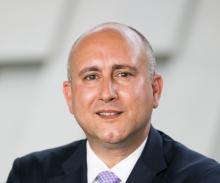When Saudi Aramco announced its Q1 earnings this week, media attention was firmly on the announced lower profits and the maintenance of the oil giant’s large dividend.
What was less remarked upon was the fact that around 25 percent of the Q1 earnings press release concerns itself not with financials or commentary on financial performance; no, the final quarter of the release focuses on a ‘Covid-19 Update’. And this update consists of the following: how we are protecting our people, operations and communities.
The actions outlined are comprehensive and impressive, and any reader is in no doubt that these considerations sit at the top of the management agenda. Perhaps most impressively, the press release guides readers to a dedicated area of the website where all the information about Covid 19 resides.
What is important here is the outlook and approach Aramco has taken, and the culture it reveals – this is a company with ESG at the heart of its investor story.
There must be a temptation in the middle of a global health and economic crisis for senior managers to question the investment they have made in ESG, seeing it as a luxury that cannot be afforded during the crisis.
Indeed, stories from around the world are rife of companies taking decisions and actions that seem to run counter to the community and society focus that Covid 19 has created: companies taking government help while paying dividends to shareholders. Companies cutting large numbers of jobs while still paying large executive bonuses. Companies axing growth plans while still buying back their own shares.
By contrast, proof is emerging that companies that stay true to their ESG promises are being rewarded by the market in terms of valuation, credit rating and access to capital.
Global ratings agency Standard & Poor’s issued a report at the end of April underlining its view of ESG-embracing firms: ‘In S&P Global’s view, strong ESG performers with stakeholder-focused and adaptive-governance structures are likely to remain resilient amid these rapidly changing dynamics.’
This is significant because, as a credit ratings agency, S&P’s decisions have a material impact on the cost of capital of its rated companies. By identifying strong ESG performers with greater resilience and adaptability, S&P is explicitly commending these companies, and implicitly downgrading those without a strong ESG performance.
In a similar vein, MSCI, the index provider and one of the largest ESG ratings agencies, announced the results of some research: ‘The Covid-19 outbreak – while over a very short term and limited in scope – is the first real-world test since the 2008 global financial crisis of the resilience of companies with high MSCI ESG Ratings. While the pandemic started in emerging markets, developed markets have become the hardest-hit regions.
‘In addition, a number of regional and sub-regional ESG indexes outperformed their market-cap-weighted parent index during Q1 2020. These results were consistent with longer-term performance.’
The findings are clear: not only is there a longer-term trend for ESG-focused companies to outperform their benchmarks but also, under conditions of maximum stress, this outperformance is maintained.
ESG, it seems, is not an unaffordable luxury; it is imperative to the health of any modern organization. The ratings agencies think so, the index compilers think so and, increasingly, investors and analysts think so.
Saudi Aramco was not jumping on a bandwagon by placing a major focus on ESG considerations in its Q1 earnings release. It was demonstrating that ESG is central to its strategy, thereby satisfying market demands.
Oliver Schutzmann is CEO of Iridium Advisors and a regular contributor to IR Magazine










